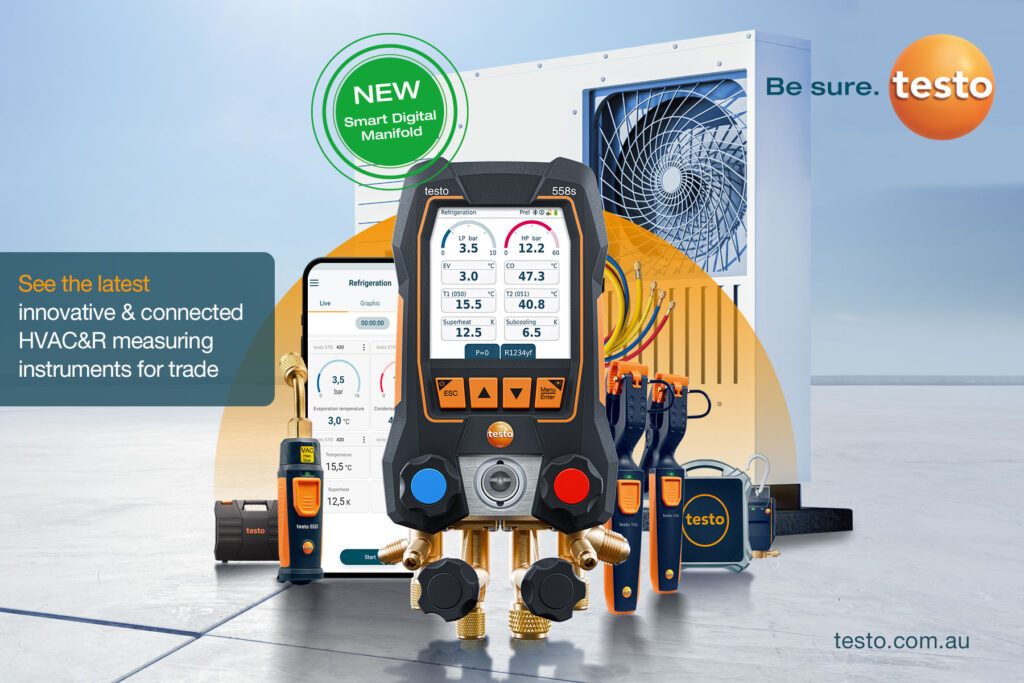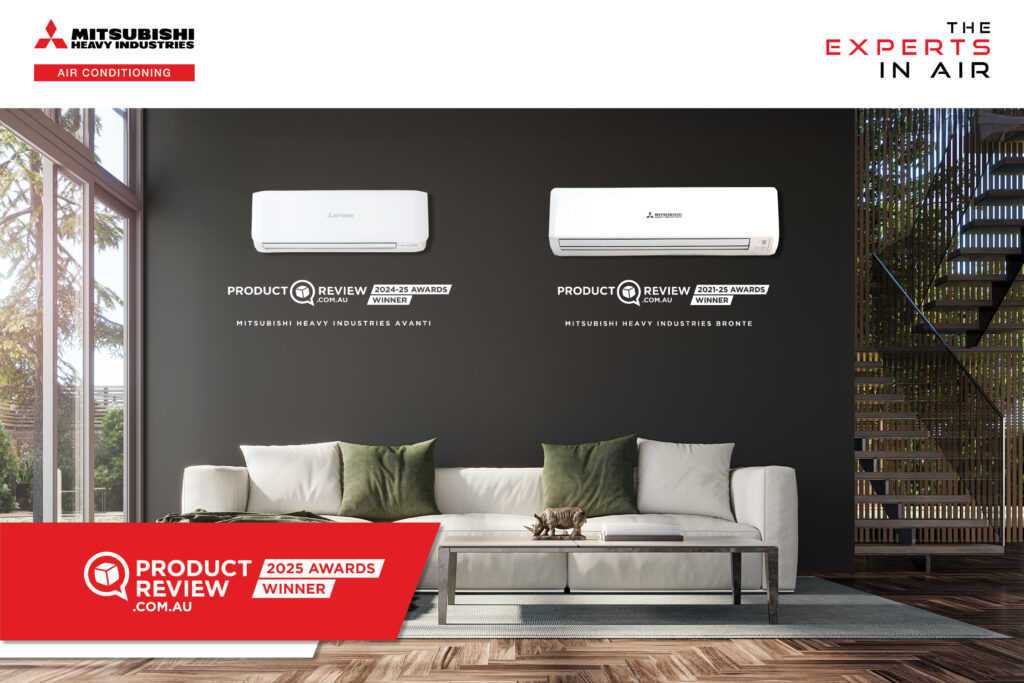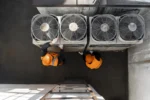An eye for innovation
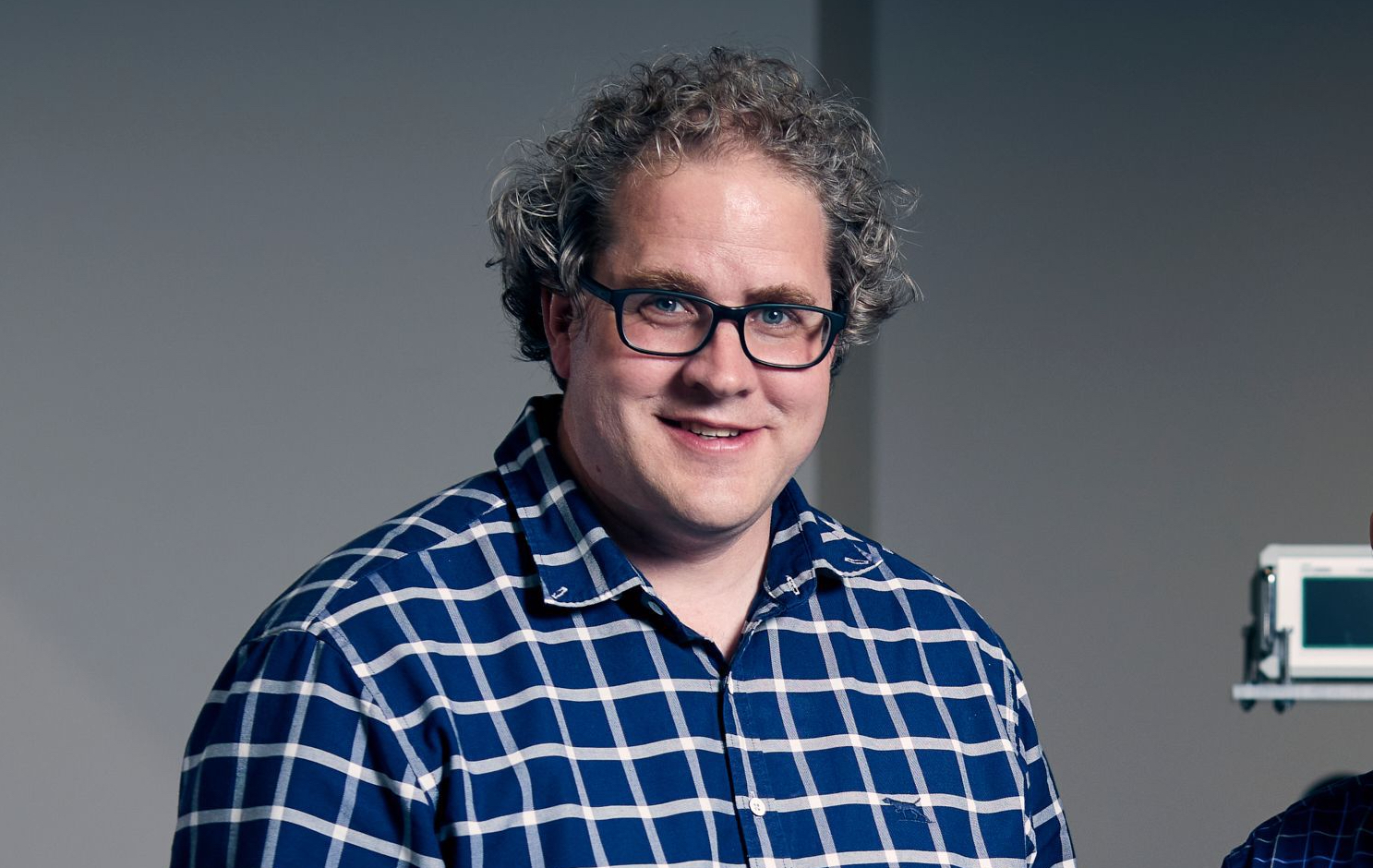
As CEO and co-founder of Conry Tech, Sam Ringwaldt, M.AIRAH, is rethinking our approach to HVAC&R.
Ecolibrium: What are your responsibilities from day to day?
Sam Ringwaldt: My day-to-day responsibilities cover anything and everything. It’s my job to lead the team, oversee project management, direct research, connect with partners and create the right product market fit. As a startup founder, raising money and speaking to investors is naturally a big part of the role too.
Eco: What do you enjoy about your job?
SR: Most of all, I enjoy the diversity of my working week. I like the chance to wear many different hats. There are always opportunities to explore and learn new things, even after two decades in the industry. I have always enjoyed collaborating with others. In my current role, it’s important that I invest in the team and build up the capabilities of others. Thankfully, this is extremely rewarding, especially when I find a chance to reflect on how much the team has progressed since the early days.
What do you find challenging about it?
SR: There’s no guidebook for this job. I know that’s what appeals to most founders, but it’s also the biggest challenge. New challenges and setbacks appear every day, and we are always building the plane as we fly it. I suffer from the same internal conflict that affects most founders: We have to build others up, but we also have to do lots of the job ourselves. That can make it extremely difficult to delegate. Sometimes it is quicker and easier to do the job yourself, but I know it is important to trust people and let them take more responsibility.
You’ve spoken about the need for innovation in HVAC&R – what do you think is necessary?
SR: While individual parts of the aircon system have been updated and become more efficient and environmentally sensitive over time, fundamentally air conditioning still relies upon massive chillers that dominate every aspect of building operation and design. These AC units are invariably designed to perform optimally in the worst-case scenario, usually the single hottest day of the year with everyone in the office. They often do so while neglecting energy efficiency on the other 364 days. If we started the aircon industry again from scratch today with a blank piece of paper, I think we’d do it differently, or at least have more variety in the options available to commercial buildings.
What trends to you expect to emerge?
SR: We believe the future of our industry will be air conditioning as a service. More decentralised business models could open new opportunities for the sector, give customers more flexibility, improve efficiency, and give companies in the sector more opportunity to earn recurring revenue. For this to occur, however, the whole approach and technology platform need to change, which is what Conry Tech is working on. We need to be able to optimise the efficiency in every part of the building, all the time, not just configure systems to run really well to deal with one particular use case under one set of conditions.
What is the key to industry improvement?
SR: The industry suffers greatly from both inertia and gatekeeping, and takes a long time to change – we know this. When it does, many people aren’t ready to take a chance unless the change comes from the big, trusted names. Expectations are also part of the problem. Most of the efficiency drivers and regulations are informed by the main industry players, almost entirely informed by what technology they currently have available. Very rarely does a benchmark get established that drives innovation by being out of reach of the current technology. If your technology already enables a building to be 7 star, or platinum rated, why push it any further? We need people to stop accepting industry standards, and start demanding more. We need consumers, like building owners, tenants, property developers, governments, institutions to demand more, to expect more, and to vote with their feet and reward those properties who are truly exceptional by moving in and staying there.
What role does building design play?
SR: I don’t want to tar every architect or city planner with the same brush, but I do think that aircon covers a great many sins. They can build anything anywhere, and they know that aircon will make their buildings comfortable no matter what. I would like to see that change. First and foremost, we must think of ways we can reduce the need for aircon. Then we need to reduce the energy use of any aircon that is required.
How would you describe yourself?
SR: First and foremost, I’m a father and husband. Naturally, that means the kids disrupt the odd Zoom call, but I think fatherhood has played a big factor in my decision to pursue more sustainable alternatives for the built environment. I want to leave the planet in a better condition for the next generation. Australia has made negligible progress towards its net zero goals, and we’ve seen the devastating impact of extreme weather events in recent years. Our industry can do a lot more to reduce its environmental impact and I’m making that my career’s mission. Aside from that, I think most people would describe me as an extrovert, a people person, or simply someone who loves to talk. I feel at home at a networking event, on a stage, or speaking to investors. It’s all part of a day’s work.
What does AIRAH membership mean to you?
SR: I’ve been an AIRAH member for many years, and it means I’m always connected with the industry and my peers. AIRAH keeps me plugged in to the industry, ensuring I’m always informed of advances in tech, emerging regulations, new deals, and all the important stories. Most people don’t think about aircon in their day-to-day lives, which is probably a testament to its success. AIRAH is the exception. It constantly recognises the great accomplishments in this space and I’m proud to be a part of this vital but little-known Australian industry.
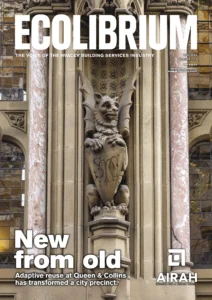
This article appears in Ecolibrium’s May 2024 edition
View the archive of previous editions
Latest edition
See everything from the latest edition of Ecolibrium, AIRAH’s official journal.
